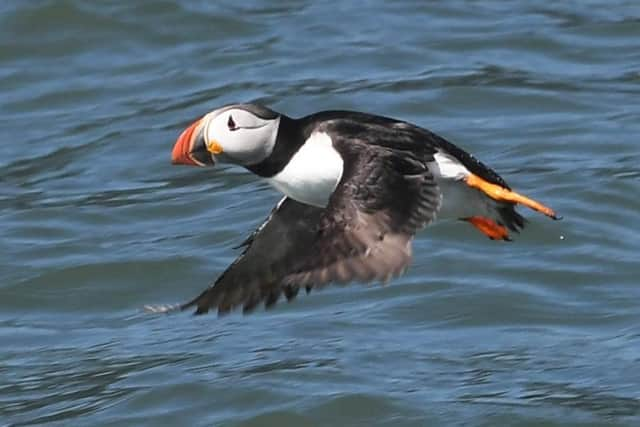More than 100 dead puffins have washed up on beaches in the past three weeks
Puffin corpses have been found on beaches throughout the northeast of Scotland, including on Orkney and Shetland - amid fears the birds could be poisoned or starved.
Cases are being recorded by the UK Centre for Ecology & Hydrology (UKCEH), which carries out long-term monitoring studies to detect the effects of environmental change on UK seabirds.
Advertisement
Hide AdAdvertisement
Hide AdDr Francis Daunt, seabird ecologist at UKCEH, said the birds found were often ‘emaciated’.


Dr Daunt said: “This is one of the most significant puffin ‘wrecks’ we’ve seen for this time of year since we began studying these fascinating seabirds almost 50 years ago.
“Many of the people who have found the birds say they are emaciated, which suggests there could be a problem within the marine food chain.
“It is worrying to now see puffins also washing up dead and sick. We hope to be able to carry out post mortems on them as well.”
Advertisement
Hide AdAdvertisement
Hide AdSome of the birds found washed up in Orkney are adults, so there is a concern that this will have a negative effect on next year’s breeding numbers.
Earlier this year in the autumn, several thousand guillemots and razorbills were found dead along the east coast of Great Britain but it is not yet known if this occurrence is linked.
UKCEH is working with Marine Scotland, Plymouth Marine Laboratory, Edinburgh University, Centre for Environment, Fisheries and Aquaculture, Natural England and DEFRA to investigate these earlier seabird deaths.
Over 100 birds have been tested for avian flu, with all tests coming back negative.
Advertisement
Hide AdAdvertisement
Hide AdScientists are probing the possibilities the puffins are starving because of a failure in the marine food supply chain, or that the birds are being poisoned by toxic algal blooms.
It is also feared the deaths could be caused by a combination of both.
Due to the complex and varied nature of the investigation into these rare events, results are not likely to be available until early next year.
Anyone who spots a dead puffin and is able to safely take a photograph of it clearly showing its beak and wings, is advised to send it to UKCEH via [email protected] but to avoid touching it.
Those who see birds that are alive but sick, is asked to contact the SSPCA or the RSCPA.